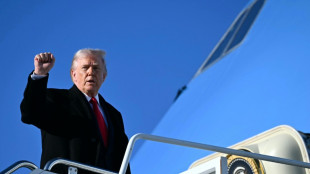

Spain's BBVA fails in Sabadell takeover bid
Spanish banking giant BBVA's hostile takeover bid for smaller rival Sabadell has failed, dashing its hopes of creating a new European sector colossus, the stock market regulator announced on Thursday.
The offer gained acceptance from 25.33 percent of Sabadell's shares and fell short of the minimum 30-percent threshold of voting rights needed for a possible second bid, the CNMV said in a statement.
"As a result, the public offer has had a negative outcome" and "is rendered null and void", the CNMV said, announcing the result a day earlier than expected.
Most analysts had doubted that BBVA, Spain's second-largest bank which has a large footprint in Turkey and Latin America, would secure more than 50 percent of Sabadell's shares, a threshold needed for outright control.
The leadership of Sabadell, Spain's fourth-largest bank, had persistently rejected BBVA's advances and recommended its plethora of small shareholders reject the bid.
BBVA reacted to the defeat by saying it would resume payouts to its shareholders and share buybacks during October and November.
"At BBVA, we look towards the future with confidence and enthusiasm," the bank's chairman Carlos Torres Vila said in a statement.
"I would like to thank the Banco Sabadell shareholders who showed their support for the merger plan, BBVA shareholders for their constant backing, and our team," he said.
Sabadell declined to respond to an AFP request for comment.
The offer, which had valued Sabadell at around 17 billion euros (around $20 billion), aimed to forge a European banking powerhouse capable of competing with heavyweights such as Santander, BNP Paribas and HSBC.
The potentially huge consolidation in Spain's banking sector had sparked opposition from the Socialist-led government over concerns about competition and the politically sensitive impact of the possible geographical restructuring of activity.
Sabadell was founded in 1881 near Barcelona in Catalonia, a prosperous northeastern region whose influence on national politics is significant -- not least due to a historic independence movement.
The region's Socialist leader Salvador Illa welcomed the outcome on X, saying it "confirms what we have always maintained: a banking system adapted to the reality of Catalonia and its business fabric".
BBVA persevered with its offer despite the government requiring a three-year freeze on merging the operations of the two lenders to safeguard market competition, seen as a major roadblock.
F.Laguardia--IM



